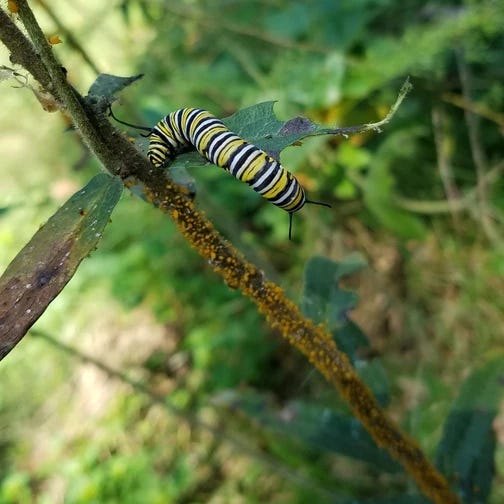Garden Myth Menu
The Christmas season is upon us, a time of insufferable music, delectable baked goods, and the making of lists. Since I swore off lists several weeks ago, I've been attempting to fill the vacuum in my life with lineups, directories, and catalogs. Not the same, but they get me by. Here's my menu of gardening myths and their debunkings for readers to ponder between bouts of fudge-making and online shopping.
Insects only attack sick plants. While I have been known to "attack" my food, it's purely in a metaphorical sense. I love my food and only wish to change it's location from outside my stomach to inside. Are insects any different? In reality it is only in the human mind that there is an attack, as we feel violated when we see our precious plants being consumed. Insects are just roaming around in search of a yummy meal. I love the saying "if nothing is eating your garden, then you're doing something wrong." It's perfectly natural for bugs to be dining on garden plants, and for said plants to still produce a decent harvest. If your plants are being decimated to the point of total loss of yield, this indicates something out of balance, but it's reductionist to blame unhealthy plants. Eschewing synthetic chemicals and building soil health will in time bring your garden ecosystem back into balance.
Weeds indicate soil conditions. Actually this statement is true (it's just of limited use to gardeners as I will explain shortly.) Plantain grows in compacted soils, which I know because I observe it in the path I've worn over many years that leads to the garden. Nut sedge likes wet conditions and is common in low lying pasture areas. Other plants give hints about pH, nutrient levels, and soil type. If you're turning an abandoned field or neglected lot into a garden, it might interest you to note the plants growing there. However in most cases it will not change how you proceed, because the first order of business is building soil by the addition of organic matter. Organic matter does it all. It improves water drainage and retention. It brings acidic and alkaline soils closer to neutral. It improve clay soils and sandy ones. It is as close to a panacea as anything I can think of, so by all means learn your weeds, but start adding organic matter too.
A compost pile, regularly turned, is essential. You don't need a compost pile to make good soil, though piles solve problems in some cases. The benefit of piles, regularly turned, is quick compost with weed seeds and pathogens destroyed. They are however labor intensive (backbreakingly so) and unnecessary. Use your leaves and grass clippings as mulch placed directly on beds. Dig kitchen waste into paths or beds that are fallow, or start a worm farm. Pull weeds and drop them in place as mulch. Build a traditional pile in the spot you want a new bed to be; leave it for a year, then plant it. If you have so much material (horse manure in my case) that a pile makes sense, pile it up and let it sit a year or so. Turning is fun the first time. After a certain age, it's impossible. I simply stopped doing it and the sky didn't fall. Everything breaks down nicely, it just takes a little longer.
Enough with gardening advice, good and bad. Time to get back to the cookie baking. If you end up with extra baked goods this holiday season, please send them my way. Be assured I will attack them with gusto.




